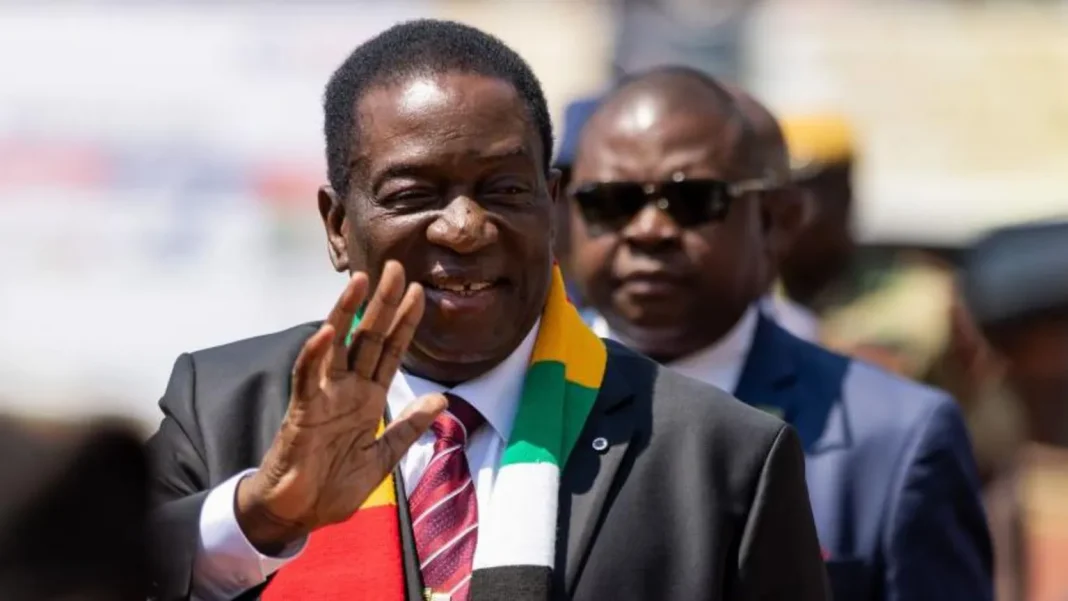President Emmerson Mnangagwa’s decision to suspend tariffs on goods imported from the US is an interesting development in Zimbabwe’s attempt to rebuild its relationship with the US, which has been strained for decades. This move comes in response to President Donald Trump’s imposition of 18% tariffs on Zimbabwean exports, signaling a shift in Zimbabwe’s foreign policy, possibly in hopes of easing tensions and encouraging trade between the two countries.
The decision seems to be a bid by Mnangagwa to create a “positive relationship” with the Trump administration, which could potentially lead to the lifting of sanctions imposed on Zimbabwe’s government. These sanctions were first introduced during Robert Mugabe’s rule after the controversial land reforms in 2000, which saw the seizure of white-owned farms, and were exacerbated by human rights violations and the suppression of political opposition. Even though the Biden administration slightly relaxed these sanctions in 2024, Mnangagwa remains on the list of targeted individuals due to concerns over democratic backsliding and corruption.
However, analysts like Tendai Mbanje argue that this move might not lead to significant economic benefits for Zimbabwe. It could, in fact, end up primarily benefiting the US, as Zimbabwe’s exports to the US have already been dwindling. In 2024, Zimbabwean exports to the US amounted to just $67.8 million, down 41% from the previous year, while imports from the US have increased. As a result, the suspension of tariffs may not create the substantial trade gains Zimbabwe needs.
Hopewell Chin’ono, a prominent Zimbabwean journalist and critic of Mnangagwa’s administration, further adds that the move could be seen as an attempt to appease the Trump administration, possibly in hopes of getting sanctions lifted. However, he also pointed out that this is unlikely to succeed, as the US is likely to maintain its stance on human rights issues and governance in Zimbabwe.
On the broader geopolitical scale, Chin’ono suggests that Mnangagwa, as the chair of the Southern African Development Community (SADC), should be working toward a coordinated response from African nations rather than acting unilaterally. This coordinated approach might offer better leverage when negotiating with the US on trade and sanctions issues.
For other countries in the region, like Lesotho, which have also been hit with high tariffs, the situation is similar. Lesotho’s government is sending a delegation to the US to negotiate a new deal, but is also exploring alternative markets for its goods. This points to a larger challenge facing African nations in navigating US trade policies that impact their economies.
This situation underscores how trade and diplomatic relations can be heavily influenced by political decisions, tariffs, and international sanctions. Zimbabwe’s move to suspend tariffs, while politically significant, might not bring immediate economic relief, and could be seen as a calculated, albeit unlikely, diplomatic gambit. It remains to be seen whether these efforts will lead to tangible changes in Zimbabwe’s relationship with the US and its broader economic recovery.


